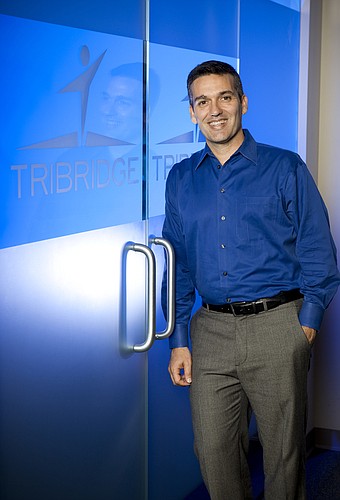- November 24, 2024
-
-
Loading

Loading

Tony DiBenedetto was born to a heroin-addicted mother, lived with grandparents until they died and then lived in more than a dozen different homes in poor black neighborhoods and elsewhere.
“It was not normal growing-up stuff,” he says. “As a result, I'm pretty resilient.”
He culled from this unusual upbringing an unexpected character trait: the value of serving others. It is a trait that has served him and the company he co-founded, Tribridge Inc., in growing an average of 40% annually since its inception in 1998 — after taking out acquisitions.
DiBenedetto was the first in his family to go to college. He graduated from Florida State University and got a job with Arthur Andersen. After 11 years in the corporate world, starting two companies on the side, one of which -- a trucking service firm -- continues today, he had to scratch the entrepreneurial itch.
With two others from Arthur Andersen, and a $300,000 check from Tampa entrepreneur Tom Wallace, they launched Tribridge -- a name inspired by the three main bridges connecting Hillsborough and Pinellas counties.
“We thought big from the beginning,” DiBenedetto, chairman and CEO, says of the firm that provides technology solutions to mid-market  companies using Microsoft business platforms.
companies using Microsoft business platforms.
The company had revenues of $2 million the first year, with $250,000 making it to the bottom line. Since then, it has grown through every downturn, never seeing a decline in revenue or a layoff. It has offices in every major market in the Southeast and a presence in every major U.S. market.
 The company is known for its service culture with customers and with other employees. Many companies talk the customer-service talk, but with Tribridge, it is an obsession.
The company is known for its service culture with customers and with other employees. Many companies talk the customer-service talk, but with Tribridge, it is an obsession.
“We make our mistakes, but there's something about how you fix them,” DiBenedetto says. Tribridge expects everyone to help everyone at the company, and even opens its financial books to employees.
Five years ago, when it was a $23 million company, Tribridge set a goal of $100 million in revenues. That was at the beginning of the recession. But it has achieved the goal. The next five-year goal: $250 million.